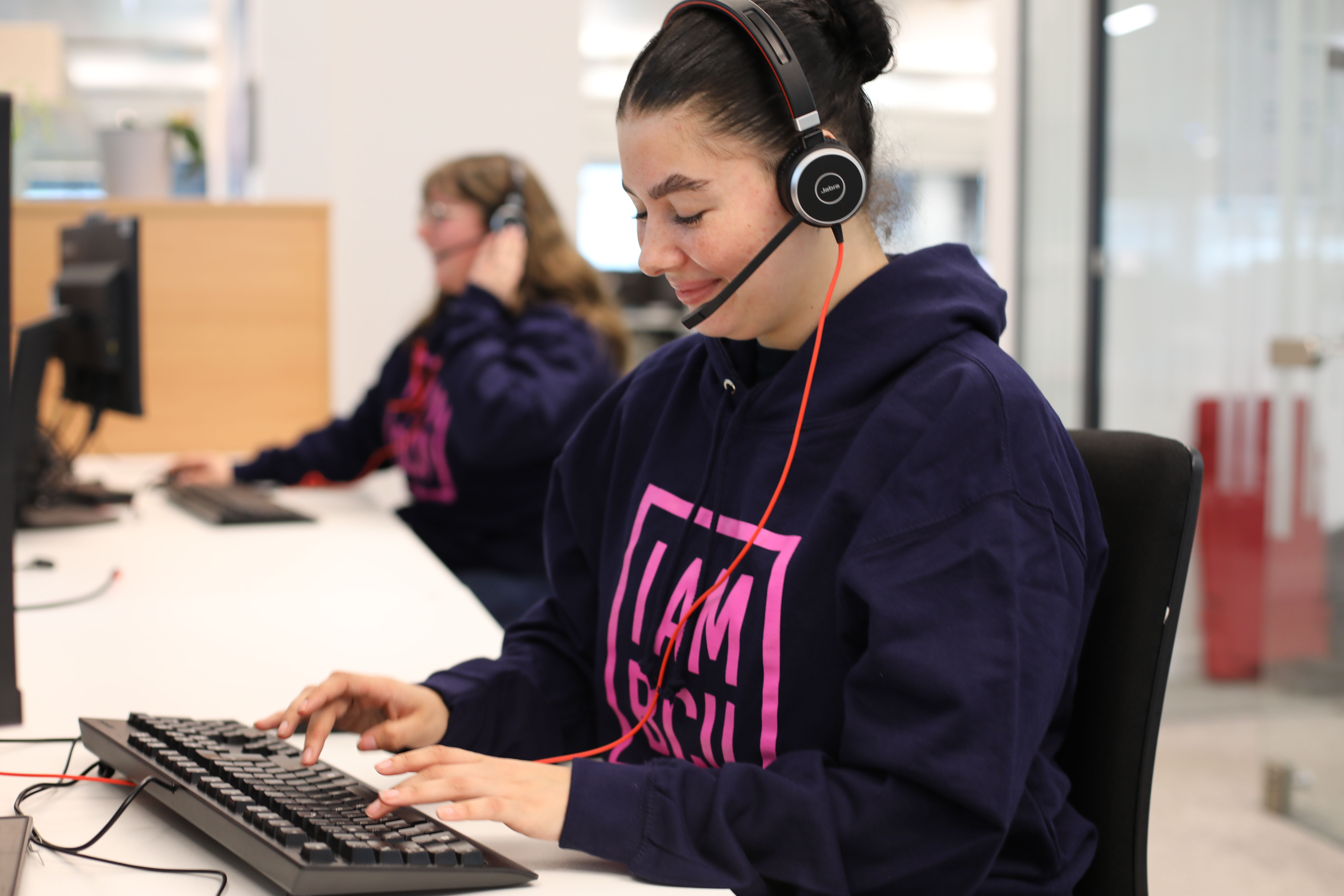The Benefits of Mindfulness.
[00:00:13] Speaker 1 Many students say that they're bothered about how university might affect their mental health and well-being. It might be useful for you to learn more about mindfulness techniques before you come and join us. So what is mindfulness? What are the benefits of being mindful and what are the many ways to approach being mindful?
[00:00:30] Speaker 2 Mindfulness can be described in many different ways, but what we mean by mindfulness is being aware of our own thoughts, emotions, and feelings, being accepting and non-judgmental, and not getting too overwhelmed by the things around us.
[00:00:42] Speaker 3 It's about being in the present and focusing on this. Different things work for different people, and mindfulness is about getting to know what works best for you and how you can harness this. Like everything, mindfulness takes practise, and it's your personal journey as to how you get there.
[00:00:57] Speaker 1 So what are the benefits? The aims are that you feel more self-aware, less stressed, feel calmer and basically be better equipped to how you respond to your thoughts and feelings.
[00:01:07] Speaker 2 Being mindful should help you fight against any unhelpful or negative thoughts. Feel kinder towards yourself and it can help boost your self-esteem.
[00:01:15] Speaker 3 Remember, this is something that is new to you, and you're aiming to see what works for you. So just accept each experience for what it is. Just be open to it.
[00:01:23] Speaker 2 So here's a few suggestions to get you on track.
[00:01:25] Speaker 1 So start small, tune into the world around you, and enjoy being in the present. Look at how you can build positive things into your daily routine, so that they don't feel like a chore. Take some time at the end of the day to reflect and check in with yourself, even if it's only for a for a few minutes or so.
[00:01:39] Speaker 3 Breathing techniques. Breathing exercises can be done at any time of day or night for a number of different reasons. They can really help you to clear your mind. All you need to focus on is the rhythm of your breathing. There are far too many to mention in this video, but a good start is to go to YouTube where you can find hundreds of tips and tutorials to get you started.
[00:02:01] Speaker 1 Just do it as much as possible even when you don't feel like it. Taking a walk is great but a few minutes in a garden or a park will help to pick you up when you need it. Take a break from that phone it is so easy to neglect what's around us.
[00:02:16] Speaker 2 Feeling close to and valued by others is a fundamental need. Creating positive interaction with people is important. If you're texting someone constantly throughout the day, why not give them a call? Or call someone you haven't spoken to in a while. You might be able to make the day.
[00:02:30] Speaker 3 Exercise. This can be as little or as much as you want. Exercise can help your body to release endorphins to make you feel good and can be beneficial towards a good night's sleep. On YouTube there are many online exercise classes to keep you motivated and many people swear by yoga.
[00:02:45] Speaker 1 Continuing learning through life can really enhance confidence. Setting goals for ourselves is a great thing to do and can really contribute to a stronger sense of well-being. So set yourself up for some new tasks. Sign up for a class or read a book. Whatever. Setting new goals for yourself can only lead to a greater feeling of achievement.
[00:03:04] Speaker 2 Great rewards can be found from your own generosity. Acts of kindness can help your wellbeing. If a friend or a neighbour needs a hand, it'd be great to give them support. There could be someone out there that really needs your help.
[00:03:15] Speaker 3 So these are just a few tips on what mindfulness is and how you can help yourself along the way. Even if you just put one of these ideas into practise, it's the start in finding what works best for you.
[00:03:25] Speaker 1 So if this is just the start of something, just Google mindfulness. There's a never-ending supply of information and help out there for you. But of course, keep checking in with your friends and family now that you're on your mindful journey.
[00:03:38] Speaker 2 So look after yourself and look after each other.
[00:03:42] Speaker 1 Good luck!

